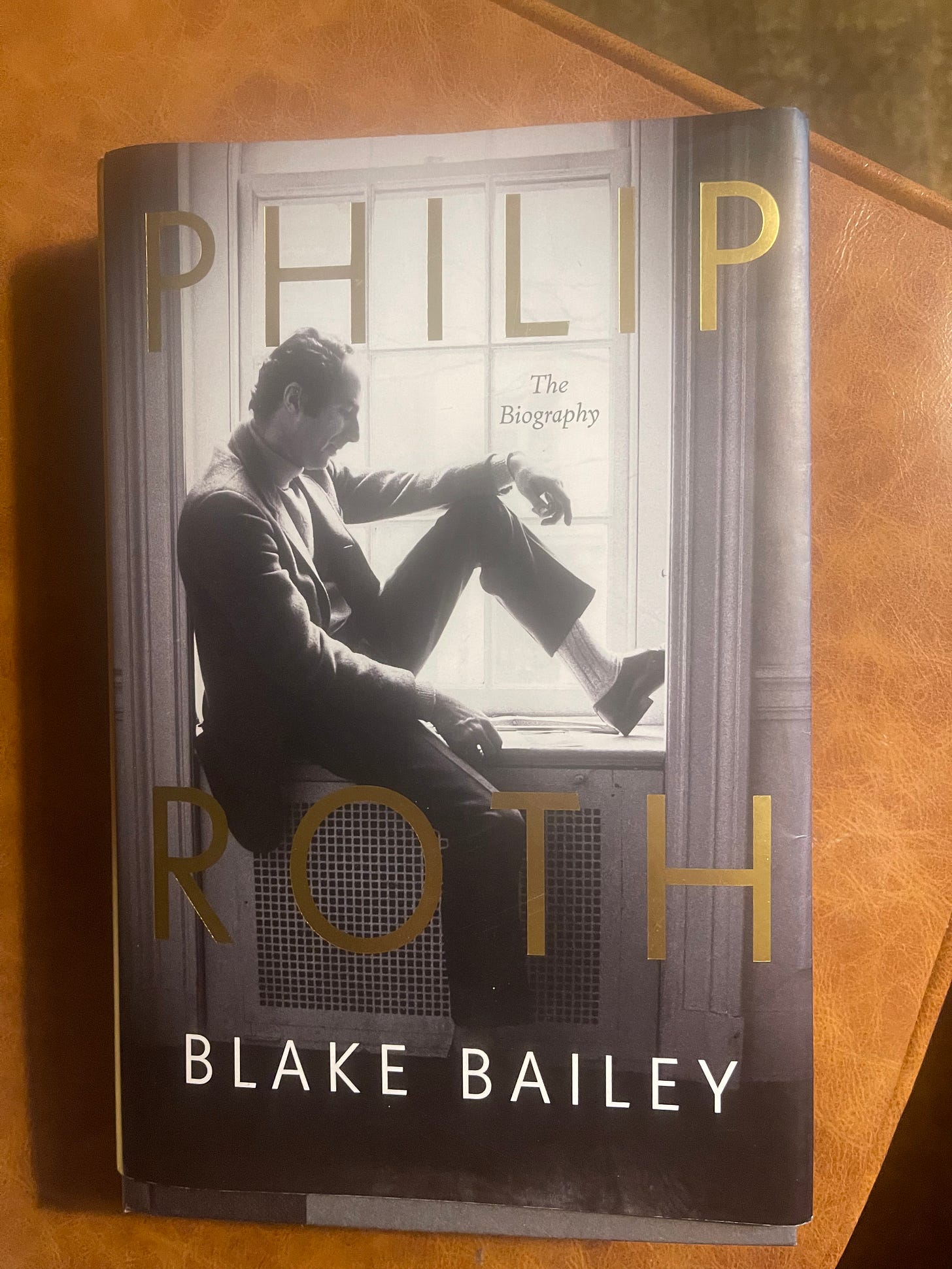Philip Roth was a man of enormous talent and ginormous contradictions. On the one hand, he wrote 32 books, garnered literary awards (PEN/Faulkner, Man/Booker, the Pulitzer) up the wazoo, and was often called, especially in later life, the “world’s greatest living writer,” a title he encouraged.
Yet privately he was a sexual compulsive, notoriously thin-skinned (he held grudges for years), and to anyone who wasn’t totally enthralled by him, defensive and unpleasant.
Such an man of massive contradictions deserves a biography of similar scope, and Blake Bailey’s exhaustively researched—and just plain exhausting—860-page book “Philip Roth: The Biography” fits
the bill mightily.
How Bailey, a gentile from Oklahoma, became the anointed Boswell to Roth’s Johnson (no pun intended) still remains a mystery, but the facts of Roth’s early life are as clear as day. Born in the predominantly Jewish neighborhood of Weequahic, Newark to Bess and Herman Roth, he attended university at WASP-y Bucknell, received a masters at the University of Chicago where he also taught for a while, and began writing stories people noticed. His early works, “Defender of the Faith” and “Goodby Columbus” brought him recognition as a wunderkind.
In the late 1960s, Roth wrote “Portnoy’s Complaint,” the famous/infamous best-seller about onanistic pleasures that earned him the title of “dirty book writer” and brought him notoriety as a “self-hating Jew” who brought shame on his people. “I am not a ‘Jewish-American’ writer,” he responded. “I am an American writer who happens to be a Jew.”
Roth went on to write novels, both great and not-so-great, but would forever more incur the wrath of Irving Howe, Commentary Magazine, and the New York Times. He was accused of being one-note, and writing novels that were purely autobiographical (which he took pains to point out were not.) With the publication of “American Pastoral,” “The Human Stain,” and in 2004 “The Plot Against America,” his place in the literary firmament was set, something not even the snide remarks of NYT’s Michiko Kakutani could diminish.
Bailey’s bio portrays Roth as constantly embattled: by literary critics who had it in for him from the get-go; by his poor health (massive back pain and heart ailments in his later years), and by two unhappy marriages which he agonized over to his dying day (May 22, 2018). The first was to a woman who tricked him into marriage with a phony pregnancy test; the second was to actress Claire Bloom who wrote a vengeful tale of their marriage. He sued her for libel.
Despite his reputation as a womanizer—well-deserved as he messed around constantly, often with more than one woman at a time—Roth was extremely kind to his mistresses, even after the romance broke up. He gifted them money, took pains to introduce them to fine literature, and even took care of their kids. Roth was also very concerned with the plight of dissident writers in Communist regimes (e.g., pre-glasnost Czechoslovakia) and raised both money and awareness of them long before anyone else did. And despite his general disdain for the mass media, he loved the film version of “Goodbye Columbus,” laughing so loudly in the theater that people in the audience had to shush him.
To anyone who is an outright fan of Philip Roth like me, this book will be manna from Heaven, (despite the embarrassing discovery that the biographer was accused of sexual misconduct, and publication of the book was halted almost immediately afterwards.) Roth’s personal flaws notwithstanding, he remains only the second great writer (after Tolstoy) who didn’t win the Nobel Prize for Literature, apparently because the Swedes couldn’t wrap their heads around him. Their loss.




I, too, am a huge fan of Roth’s writing. But not sure I’m up for an 860 page biography. Your review serves as my Cliff Notes version of Bailey’s book. So thank you.